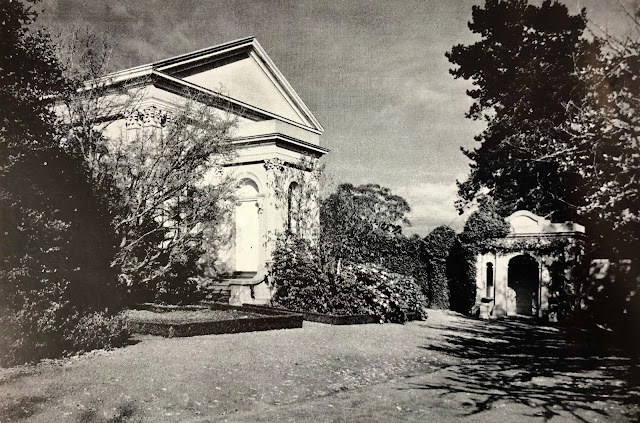No. 1492 - Burnie - The first Gospel Hall on Mount Street (1876)
Burnie is a port city on the north-west coast of Tasmania. The origins of the town date back to 1827 when a settlement was established at Emu Bay by the Van Diemen’s Land Company. The settlement was later renamed Burnie after William Burnie, a director of the Van Diemen's Land Company.
The Christian Brethren began services in Burnie in 1875 when a small group met at the home of George Atkinson, son-in-law of Chartist convict, Zephaniah Williams. Here a committee was formed for the purposes of constructing a Gospel Hall. Their work was assisted by James ‘Philosopher Smith’, who discovered tin at Mount Bischoff. Smith donated land in Mount Street for the Hall. In 1875, the three trustees called for tenders for the construction of a simple timber building. The Hall opened in 1876, at a cost of £25.
At first, conditions were rudimentary, with no wooden floor and unlined walls. Over the years the building was improved and was also used for a Sunday school. On the death of Smith, his widow donated further land in order to build a larger brick hall alongside the original building. This was completed in 1915 and the old hall was demolished a few years later.
The Christian Brethren began services in Burnie in 1875 when a small group met at the home of George Atkinson, son-in-law of Chartist convict, Zephaniah Williams. Here a committee was formed for the purposes of constructing a Gospel Hall. Their work was assisted by James ‘Philosopher Smith’, who discovered tin at Mount Bischoff. Smith donated land in Mount Street for the Hall. In 1875, the three trustees called for tenders for the construction of a simple timber building. The Hall opened in 1876, at a cost of £25.
At first, conditions were rudimentary, with no wooden floor and unlined walls. Over the years the building was improved and was also used for a Sunday school. On the death of Smith, his widow donated further land in order to build a larger brick hall alongside the original building. This was completed in 1915 and the old hall was demolished a few years later.




Comments
Post a Comment